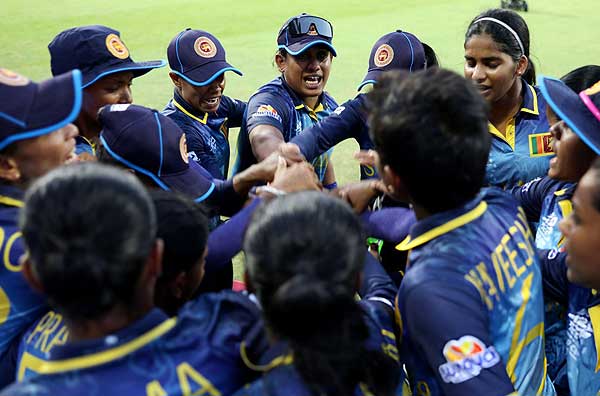Sri Lanka’s women’s cricket team captain Chamari Athapaththu and vice-captain Anushka Sanjeewani have filed a legal petition challenging the Inland Revenue Department’s (IRD) decision to classify them as employees of Sri Lanka Cricket (SLC).

The petition, which has also been backed by the men’s national team cricketers, seeks an order to overturn the IRD’s directive and suspend its implementation. The matter has been scheduled for a hearing alongside the men’s team’s petition before the Court of Appeal on April 3, 2025.
Athapaththu and Sanjeewani argue that the IRD’s classification disregards the long-standing contractual framework between Sri Lanka’s cricketers and SLC. For over 15 years, national cricketers have been regarded as independent service providers, a distinction that has shaped their financial and contractual dealings. Their legal counsel contends that the IRD’s move is arbitrary and unreasonable, leading to confusion and instability within the sport.
In their plea, the petitioners highlighted that cricketers are not salaried employees but are instead remunerated through match fees and contract-based payments. They further emphasized that players’ contracts do not guarantee long-term employment, and renewal remains subject to selection and performance metrics. The petitioners insist that while they are committed to fulfilling tax obligations, they should continue to be recognized as independent contractors.
Prominent legal representatives are engaged in the case. Counsel Nishan Sydney Premathiratne, along with Shenali Dias and Sidath Gajanayaka, appeared for the petitioners under the instructions of Gamindu Karunasena. Representing SLC, President’s Counsel Kuvera de Zoyza, along with Pasindu Bandara and Sajana de Zoyza, reaffirmed the board’s stance that national cricketers are independent service providers. Deputy Solicitor General Manohara Jayasinghe represented the IRD.
The petitioners also submitted a letter signed by 38 national cricketers, reinforcing their collective opposition to the IRD’s decision. The cricketers underscored that their agreements have historically allowed them to retain image rights, a key aspect of modern cricket’s commercial structure. Additionally, they noted that this abrupt reclassification affects players attached to organizations such as the police and military, further complicating the issue.
Legal experts representing the petitioners asserted that the IRD’s directive disrupts the current contractual arrangement and creates uncertainty over financial planning. They emphasized that Sri Lanka’s cricketers are not seeking employment benefits such as the Employees’ Provident Fund (EPF), Employees’ Trust Fund (ETF), or gratuity, but merely want to preserve their established status as independent contractors.
SLC’s legal representatives confirmed that the board aligns with the players’ perspective, indicating their readiness to comply with any decision the Court renders. The hearing continued on March 28, 2025, where the petitioners will advance their submissions, followed by responses from the respondents. The case has garnered significant attention, as its outcome may influence how professional athletes in Sri Lanka are classified and compensated in the future.

Loves all things female cricket